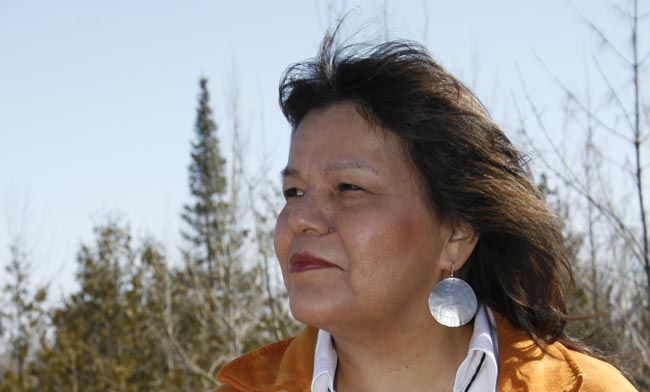Fighting against disease…and discrimination

By Doris Peltier
For those of us involved in advancing public education about HIV/AIDS, our challenge has always been and will continue to be about addressing stigma and discrimination, whether we are working to address HIV care, treatment and support, and now prevention.
Within the hierarchy of disease, HIV and AIDS is at the bottom of the heap, so to speak. In my community, HIV has been referred to as “wiinaapinewin”, which translates to “dirty disease”. A peer, whom I greatly admire, and who has been tirelessly working with people in remote fly-in First Nations communities in Northern Ontario, hits the nail on the head when he said, “there is a prevailing code of silence and reluctance to talk about HIV and sex in our communities.”
And herein is our dilemma. Against this backdrop of historical trauma and its ripple effects, the accompanying shame as a direct result of these experiences keep our people at a place where there is reluctance in talking about sex. How do we convey the importance of deconstructing our thinking, and finding ways to talk about sex in healthy ways as part of prevention?
It is important to note that a holistic model is an all encompassing approach, and works for all these diseases, including HCV and ‘sexually transmitted blood borne infections’ (STBBIs) and will help us as we move towards the promotion of healthy sexuality.
The World Health Organization defines sexual health as follows: ‘Sexual health is a state of physical, mental and social well-being in relation to sexuality. It requires a positive and respectful approach to sexuality and sexual relationships, as well as the possibility of having pleasurable and safe sexual experiences, free of coercion, discrimination and violence.
One aspect of the work that I and several women from across the country have been involved with in the last two years has been on a research project entitled “Visioning Health: An Arts-Informed Approach to Understanding Culture and Gender as Determinants of Health for HIV-Positive Aboriginal Women.” This research project utilized a strengths-based approach grounded in decolonizing methodologies, utilizing arts-based approaches that embraced culture and ceremony. It signaled a break away from how research has traditionally been done. It was time to tell a different story that honored the ‘lived experience’ of Aboriginal women by showing their resiliency and strength in the face of an epidemic that is having a huge impact — particularly for Aboriginal women — in Canada.
I truly believe that by embracing, entrenching and embedding cultural practices and ceremony into all that we do as we move forward can only strengthen us as community and as nations. Our indigenous research is already moving in this direction within a decolonizing construct. We need to move away from the telling of a “dangerous story” that focuses on our deficits. Our communities need to hear a different story, a story of our resilience and strength; a story that speaks to how we thrive as opposed to just surviving.
Doris Peltier, Wikwemikong Unceded Indian Reserve, is Aboriginal Women & Leadership Coordinator with the Canadian Aboriginal AIDS network, and an Aboriginal Person with HIV/AIDS (APHA) liaison.

